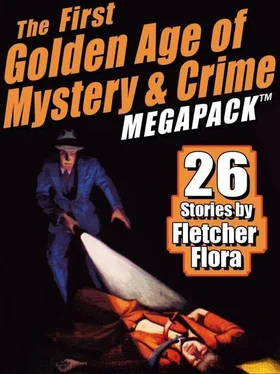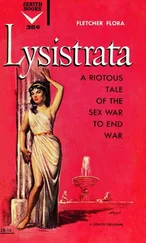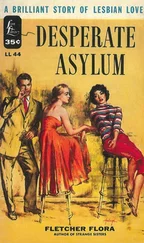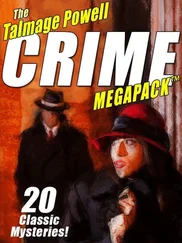Outside on the curb, Charles waited a few moments until he caught the eye of a cruising cabby. “Ambassador Hotel,” he said, and relaxed in the back seat. The cabby shot a glance at his reflected face in the rear view mirror, and he also, like the elevator boy, used mentally the word bastard. The term was prompted by a kind of impersonal envy, however, and was qualified by the word lucky instead of conceited. Some guys have all the luck. Looks and dough. Nothing on their minds but spending the next buck on the next beautiful dame.
As a matter of fact, Charles wasn’t thinking of money and women at all. Not that he didn’t think of them quite often. It was just, at the moment, that he was absorbed by another matter that had gained temporary dominance. Sitting there in the back seat of the cab, watching through glass the streets that assumed in the early sun a sparkling, deceptive look of cleanliness, he wondered how long it took for a life to drain away through a neatly opened artery in the wrist. He had for a moment a very vivid vision of darkening water, but he was, apparently, not disturbed by the vision. Looking out at the sparkling streets he didn’t see, he even smiled a little now and then.
He was admitted to the lobby of the Ambassador by a doorman six and a half feet tall (all the doormen at the Ambassador had industrious pituitarics; this gave them a special look; in their vivid uniforms, a kind of Queen’s Guard look) and he was relieved of his bag by a bellhop who looked like a sophomore out of the best frat in a good college, which was another calculated specialty of the Ambassador. At the desk, he was subjected to a cool appraisal by a cool clerk who might have been, from his appearance, a controlling stockholder in the corporation that owned the string of fancy hotels of which the Ambassador was one. Charles did not mind the appraisal. He was hardly aware of it. He was so used to acceptance, even privilege, that the possibility of anything else had ceased to be a concern in his life. He signed for a room and ascended ten floors with the bellhop.
Alone in his room, he unpacked his bag and disposed of the contents neatly. Then he put the bag in the closet and sat down for a cigarette. Reviewing his activity dispassionately to that point, he could think of nothing that he had done or failed to do that was sufficient to crack his calm assurance. He had proceeded throughout with bold strokes. Except for the one major point of murder, he had been perfectly open. He had mentioned Carol in the note, and his affair with her could be verified by several parties, although he had been careful that Wanda herself had known nothing of it. He had been so open that no one, not even the most obtuse investigator out of Homicide, if it came to that, would suspect him of murdering Wanda for motives that could so easily be pinned on him. But he didn’t for a moment really think that it would ever come to Homicide. The alternate was too credible. An ugly, neurotic little woman like Wanda and a man like him. Suicide, indeed, would be the only really credible disposition of the case.
But wouldn’t she have taken steps to exclude him legally from inheritance? Wouldn’t she have seen to it, in the end, that he could never touch that beautiful million? This, of course, was ridiculous. He smiled dreamily into the thin blue smoke of his cigarette, thinking what any competent psychiatrist would do to a contention like that. A shattered woman committing suicide in the intensity of neurotic anguish simply doesn’t take time to tie up loose ends. If she was capable of that she would never commit suicide at all. No. She would do it as it would be assumed that Wanda had done it, quickly and blindly and without rational thought.
Having been open to this point, the strategy would be, of course, to continue that way. No reason at all, for example, why he shouldn’t see Carol. As a matter of fact, it would strengthen his position as a man who had not tried to dissemble and had nothing to hide.
Passing to Carol, his thoughts lost their cool quality of detachment. They acquired, as they always did when she was their subject, heat and a certain wildness, reverting now to the remembrance of past instances in his relationship with her, and now pressing forward hotly to the anticipation of more to come. Carol, beautiful and hard and calculating. Carol, his kind of woman, stone and fire, remembered and anticipated in a hundred positions and places. In the soft and scented and designed clusk of a dozen fancy lounges with a thin stem of brittle glass between her scarlet-tipped fingers and her lips glistening from the touch of a martini or a daiquiri or a Pink Lady or whatever it happened to be at that particular time. In sand and sun with her golden-brown body barely broken by flimsy scraps. In other places when it was broken by nothing whatever.
At this moment she would be in bed, still asleep, her heavy pale hair shining on the pillow, her exciting body shadowed slightly by a haze of sheer nylon. Her lips would be parted, just barely parted, with bright enamel just visible between them, and the shadows of lashes that were real would be cast below closed lids. The imagery of her lying there like that was so strong in his mind, so real and so prescient, that he forgot completely, for a while, the image of the other woman who was still a pertinent factor in his life, the one sitting by the tub with her arm dangling in red water. The one who also slept, but differently and more deeply.
He sat in the room for perhaps thirty minutes, and then he went out and caught a cab, and within another thirty minutes he was ringing the bell of the door behind which was the reality of his imagery. It took her a long time to open the door, verifying the validity of his thoughts of her asleep, and when she finally came, she had pulled over the haze of nylon a second haze that did a little, but not much, to diminish transparency. He went in, and she closed the door behind him, and they met and fused in a spontaneous generation of heat that was a kind of emotional combustion. Her lips were restless and hungry, her hands and body aggressive in conquest.
After a while, hunger somewhat abated, she said, “Did you do it, Charles?”
“Yes,” he said. “It’s done.”
“She’s dead?”
“Certainly. You can’t bleed freely very long and not die.”
“Was it hard?”
“No. It was simple. Very easy. It went just the way I planned it.” He went over to a table and helped himself to a cigarette from a silver box. He made no motion to light the cigarette but stood revolving it slowly between the fingers of his two hands. “The hard part is coming up. It’ll take guts, darling.”
She followed him to the table and took the cigarette from him. She carried it to her lips between index and middle fingers and waited with the cigarette still between the fingers until he had picked up the lighter that matched the box and furnished flame. She exhaled smoke in a long plume, and her lips curled around the cigarette in a quiet little smile that suggested some kind of amusing esoteric knowledge.
“Don’t worry about my guts,” she said.
He took one of her hands and held it palm up, stroking the palm slowly and softly. “Are you sure? Are you quite positive you can take it? Her supposed suicide will create a hell of a stink. We’ll be torn to shreds. You know the things that will be said. Lots of people will call us a pair of murderers. Morally, that is.”
“Morally?” She lifted shoulders to indicate what she thought of morally. “What about legally?”
“Legally we’re safe enough. They can’t substantiate anything by suicide. I doubt if they’ll even seriously consider anything but that.”
“What about the money?”
“It’s all right, I tell you. The only thing that’s left is to carry the thing through. If you play it wrong, if you say the wrong things or break down the least little bit, we’re sunk. If we give them nothing more than they have now, they can never definitely establish anything against us even if someone gets an idea or two.”
Читать дальше












